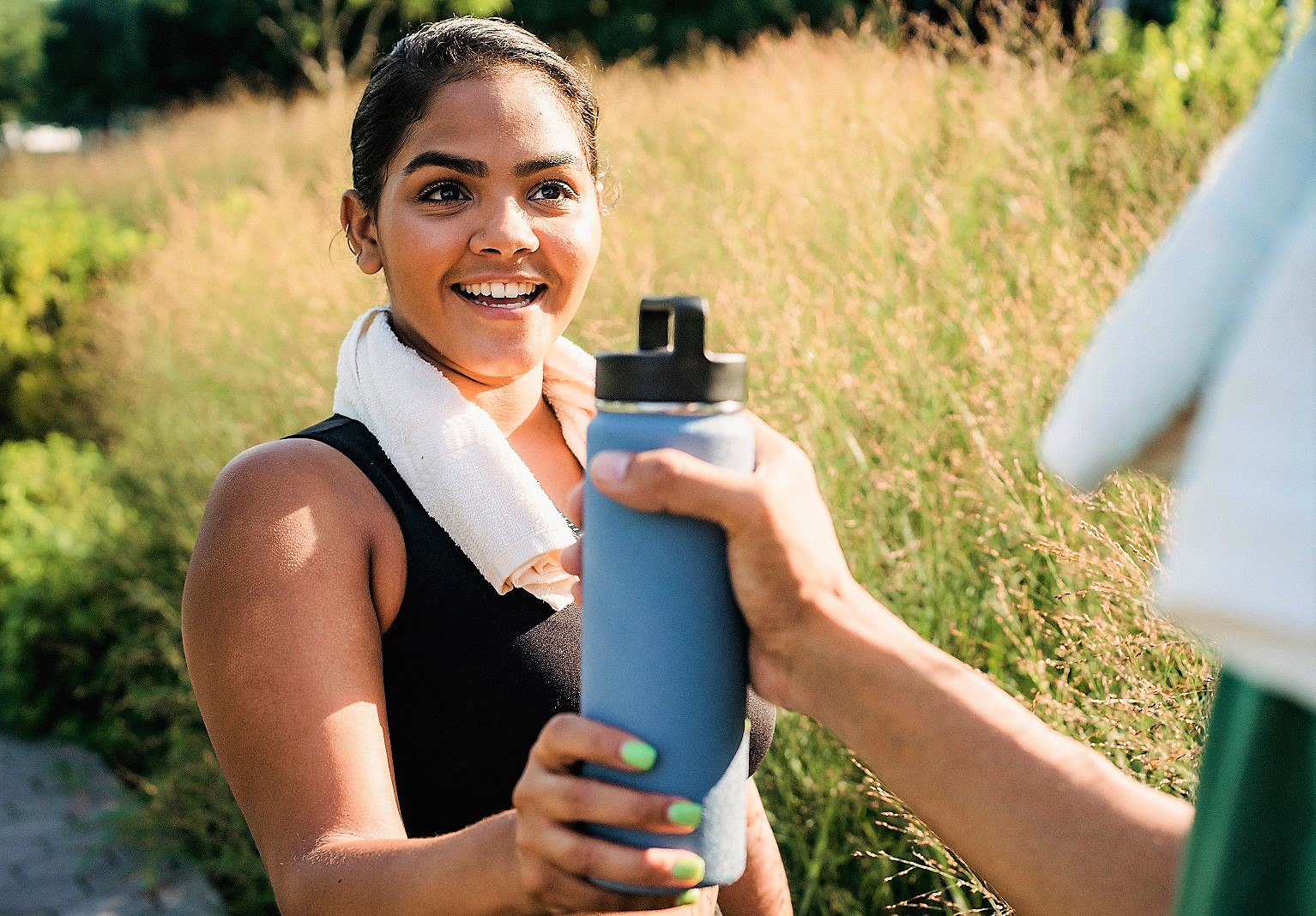Five Symptoms of Dehydration
- Posted on: Jul 19 2023
During summer months, temperatures spike and create an increased risk of dehydration. Dehydration is a condition where the body loses more water than it takes in, resulting in a disruption of normal body processes. Summer heat can prompt you to sweat more in an attempt to lower your body temperature, which leads to more water loss and, potentially, dehydration.
The World Health Organization (WHO) states that heatwaves are among the most dangerous of natural hazards. Summer months are most likely when heatwaves strike and a crucial time to be proactive about your fluid intake.
Approximately 60 percent of your body is water. Maintaining proper water composition is essential for your body to properly function. You naturally lose water throughout the day while sweating, urinating and during bowel movements. Physical activity and heat can prompt you to sweat more, resulting in a higher level of fluid-loss. Illness, vomiting and diarrhea can also lead to excessive fluid loss and dehydration. When you are dehydrated you can experience symptoms ranging from headaches and cramps to kidney failure and heart problems.
If you are dehydrated, quick action is crucial for recovery, which is why it is important to know the signs and symptoms of dehydration.
Five Signs of Dehydration
1) Thirst and Dry Mouth
As a general rule, if you’re thirsty, you are already dehydrated. It is important to be proactive about hydration and meet daily fluid intake recommendations. Fluid needs vary based on age, activity level, heat and altitude level, among other factors, but the Academy of Nutrition and Dietetics recommends women drink 9 cups of fluid per day and men drink 12.
2) Headache
Lack of liquids can lead to restriction of blood vessels which decreases blood flow. When blood flow is decreased it can cause a headache and even trigger a migraine.
3) Confusion
Decreased blood flow to the brain can make you feel disoriented, dizzy and confused. You may have problems with recall or have difficulty with finding the right words. Confusion can be an early sign of heat exhaustion. If you are warm and confused you should stop your current activity, seek shelter in a cool place and rehydrate.
4) Muscle Cramps
Excessive sweating and lack of electrolytes can cause your muscles to seize or cramp. Dehydration cramps are typically felt in the legs, arms, abdomen and back. Dehydration leg cramps, sometimes called “Charley horses,” can strike when you’re asleep or during activity. Stretching and drinking fluids will help you rehydrate and ease muscle cramps.
5) Dark Urine
If your urine is pale in color—similar to the color of straw—then you are properly hydrated. If your urine is dark yellow and bordering brown or orange, you are dehydrated and should stop what you are doing to rest and rehydrate.
In the summer heat, dehydration can quickly become heat exhaustion or heat stroke, which can lead to complications with vital organs like your heart and brain. Severe dehydration symptoms include fever and/or chills, a core temperature of 104 degrees or higher and loss of consciousness. This typically happens after you stop sweating, which is a sign the dehydration may cause overheating. If you or someone is experiencing extreme dehydration symptoms, call 911 immediately.
About Severe Dehydration
Can dehydration cause low blood pressure?
Yes. Severe dehydration can cause a decrease in blood volume which results in a decrease in blood pressure. When your body can’t deliver proper blood flow and oxygen to your organs, you can enter hypovolemic shock, or low blood volume shock. This is one of the most serious, sometimes life-threatening complications of dehydration.
Can dehydration cause heart palpitations?
Yes. For the same reason dehydration can cause low blood pressure, it can also cause heart palpitations. Palpitations are the feeling of a pounding, fast-beating or fluttering heart. When blood volume is decreased, the heart has to beat faster to try to continue to deliver oxygen to your organs. If you are experiencing heart palpitations you should stop what you are doing, rest in a cool location and drink water until your heart resumes a normal rhythm.
How long does it take to recover from dehydration?
It depends. Mild dehydration can be easily recovered from at home with rest in a cool place and increasing fluids and electrolytes. Sports drinks and over-the-counter oral rehydration solutions, like Pedialyte, can help return your body back to its necessary fluid and electrolyte levels. More severe cases of dehydration need to be treated by emergency personnel in a hospital setting with intravenous (IV) fluids.
What is the best way to avoid dehydration?
There are actions you can take to stay hydrated and healthy. Being proactive about your fluid intake, taking precautions in the heat along with other preventive measures, and knowing the signs of dehydration can all help you avoid dehydration.
If you have questions about your health in general, feel free to speak with our doctors at Prime Medical, San Pedro’s simplest healthcare provider with your most frequently needed services all on-site. Call (310) 548-0201.
Thank you for reading our blog and please stay hydrated!
Tagged with: dehydration, fitness, health
Posted in: Fitness, Health, Nutrition, Senior Living



